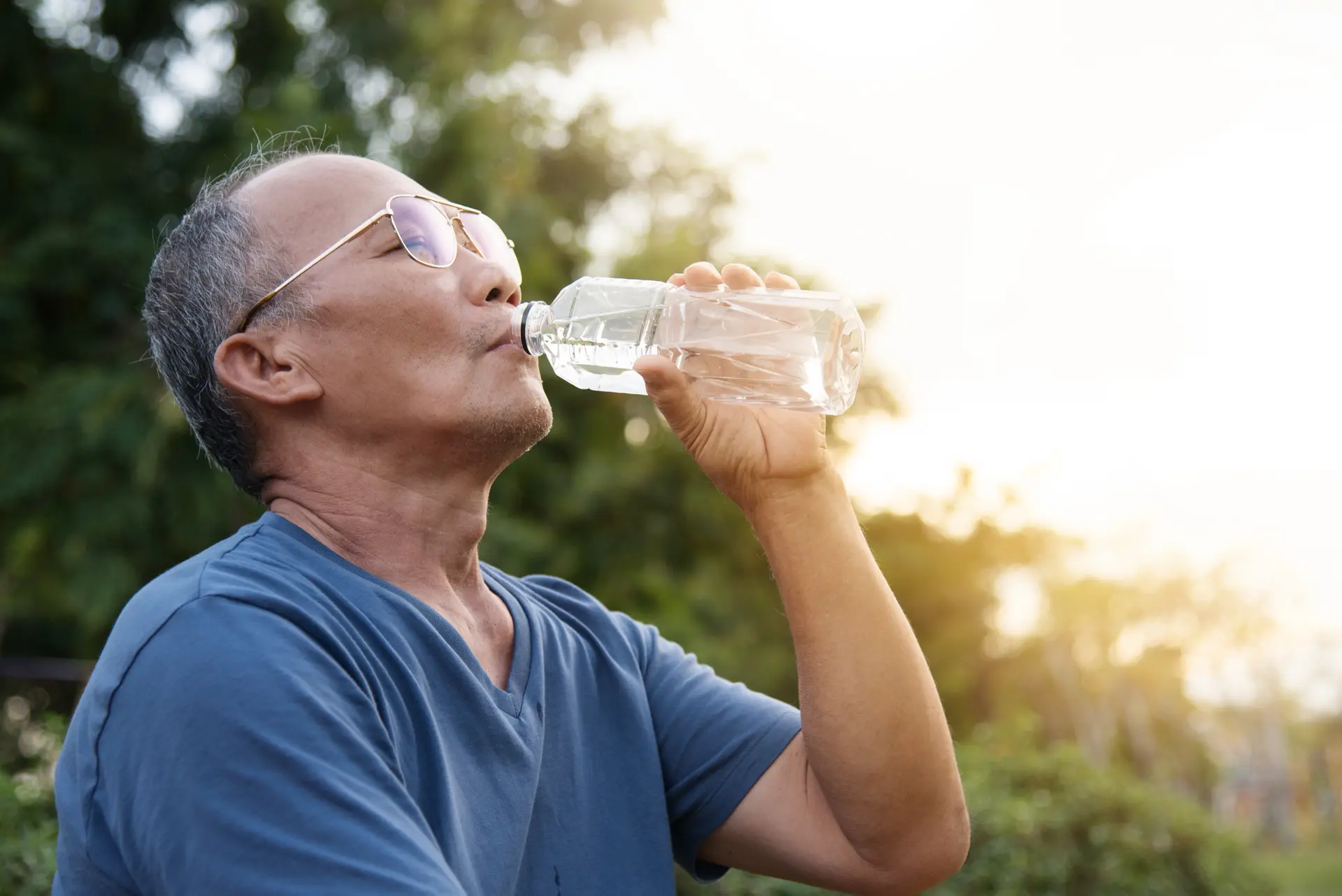Heat Related Health and Safety Tips

Elderly persons, small children, persons with chronic health conditions, and individuals on certain medications are particularly susceptible to heat reactions, especially during heat waves. Here are some heat related safety tips to help you stay safe in extreme weather.
Slow down
Strenuous activities should be reduced, eliminated, or rescheduled to the coolest time of the day. Individuals at risk should stay in the coolest available place, not necessarily indoors.
Dress for summer
Lightweight, light-colored clothing reflects heat and sunlight, and helps your body maintain normal temperatures.
Remember your hat
Hats help keep your head and face out of the sun and heat.
Drink plenty of water or other nonalcoholic fluids
Your body needs water to keep cool. Drink plenty of fluids even if you don’t feel thirsty. Persons who (1) have epilepsy or heart, kidney, or liver disease, (2) are on fluid restrictive diets, or (3) have a problem with fluid retention should consult a physician before increasing their consumption of fluids.
Do not drink alcoholic beverages
Baths and showers
Cool baths or showers (with water temperature around 75° F) provide amazing relief from the heat 25 times faster than cool air.
Spend more time in air-conditioned places
Air conditioning in homes and other buildings markedly reduce danger from the heat. If you cannot afford an air conditioner, spending some time each day (during hot weather) in an air-conditioned environment affords some protection.
Cooling Centers
In extreme heat, the County may open cooling stations. These are cool and safe places where everyone, including senior citizens, can go to escape the high temperatures. For more tips on staying safe in the heat, visit our Office of Homeland Security resource page for extreme heat.
